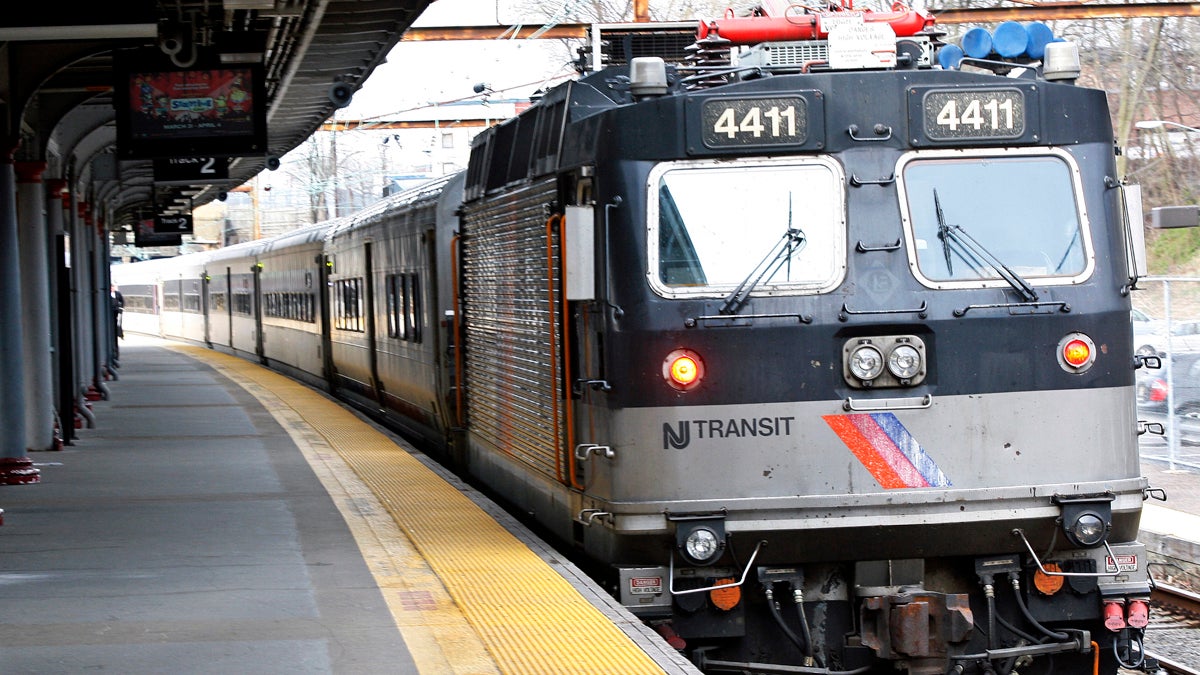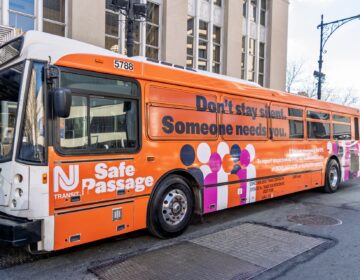Appeals court sides with NJ Transit on arresting preachers on platform
The ruling caps a six-year legal fight over whether ministers were the targets of discrimination.

An NJ Transit train pulls into the station (Mel Evans/AP, file)
A federal appeals court in Philadelphia has ruled against two New Jersey evangelical ministers who claimed their rights were violated when they were arrested for preaching without permits at a New Jersey Transit station in Princeton.
The 2-1 ruling from the 3rd U.S. Circuit Court of Appeals affirmed the decision of a lower court, likely closing a nearly six-year legal fight over whether the preachers were targets of discrimination — or merely two people who broke state permit rules.
“It’s a step against free speech,” said lawyer John Bloor, who represented the ministers. “It’s allowing people who are exercising constitutional rights to be silenced, if their speech is not agreeable to certain listeners.”
Early one morning in June 2012, Christian ministers Don Karns and Robert Parker took to the platforms of the Princeton Junction train station to spread the Gospel.
New Jersey Transit officers noticed that Karns and Parker were behaving in a way “that was not the normal behavior of a commuter,” which included Parker “shaking uncontrollably” as he delivered his religious pitch to commuters.
When the officers asked Karns and Parker for valid identification, neither complied. The officers then arrested the ministers on charges on obstruction for their refusal to show the officers ID. The two preachers were also charged with defiant trespass for preaching without a permit.
Under New Jersey law, “noncommercial” expression on state property requires a permit.
Although all the charges against Karns and Parker were eventually thrown out, the duo decided to file civil suit against New Jersey Transit, claiming it had bias in its enforcement of permitting requirements. They argued that the officers arrested them in retaliation for their Christian messages and said the officers did not have probable cause to question them in the first place.
Karns and Parker, backed by Christian civil liberties group the Rutherford Institute, asked for damages from New Jersey Transit, claiming they were deprived of their right to free expression.
But transit officials responded by saying, as a state agency, New Jersey Transit and its officers have immunity from such claims.
And the court agreed, writing, “the state law factor therefore weighs strongly in favor of immunity.”
Even if the transit officers could be held responsible, the judges decided that the ministers’ rights were never violated.
“Karns and Parker also led the officers to believe that they would remain on the platform despite knowing that they lacked the requisite permit,” the judges wrote. “These facts amply support the officers’ determination of probable cause that Karns and Parker were engaged in criminal trespass.”
Circuit Judge Jane Roth cast the sole dissenting vote, arguing that, based on a strict reading of past cases, New Jersey Transit should not be afforded protection from civil lawsuits.
“New Jersey Transit is not the alter ego of New Jersey,” Roth wrote.
“My colleagues permit New Jersey Transit and the transit officers to wriggle through this loophole,” she said
Lawyers for New Jersey Transit declined an interview request.
Bloor, the attorney for the ministers, said he may ask the appeals court to reconsider, requesting that the full panel of appeal judges, known as en banc, consider his challenge.
WHYY is your source for fact-based, in-depth journalism and information. As a nonprofit organization, we rely on financial support from readers like you. Please give today.




